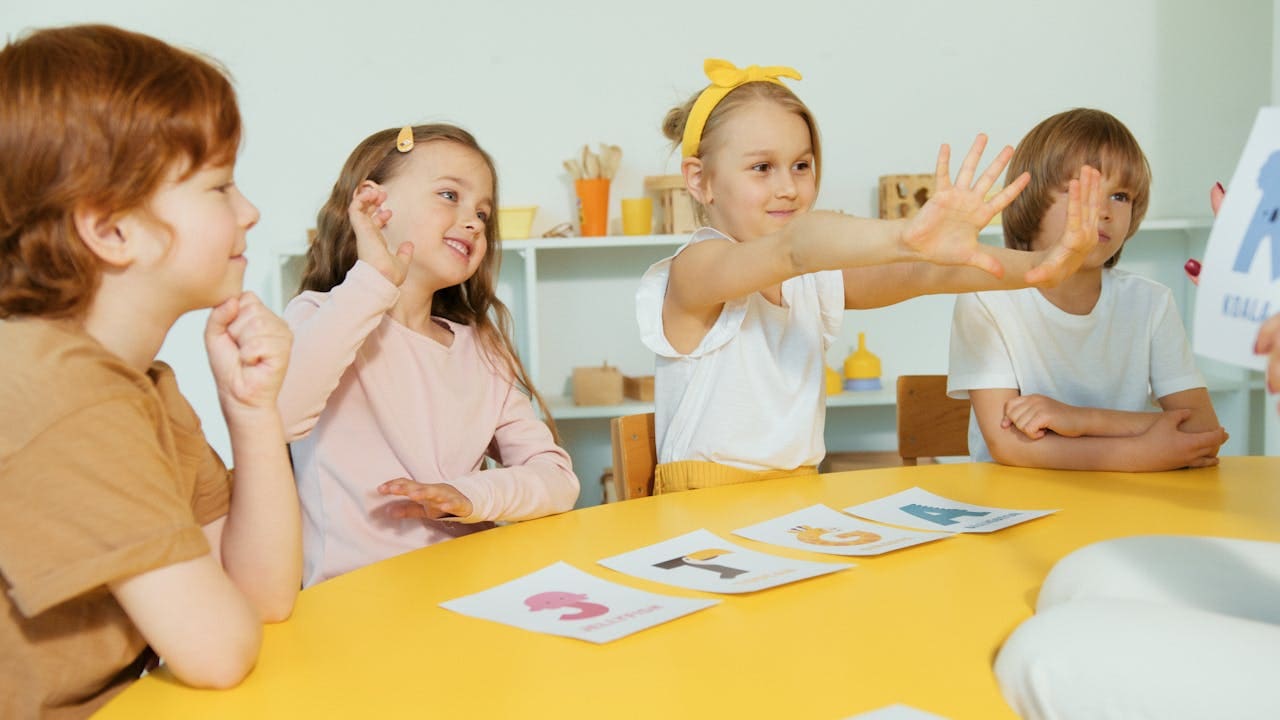Active listening is a crucial skill that helps children thrive in both their personal and academic lives. Engaging in active listening exercises not only enhances their communication abilities but also fosters empathy, concentration, and problem-solving skills. By incorporating fun and interactive listening games, parents and educators can support children’s development in a way that feels like play. This section explores a variety of active listening games and the numerous benefits they offer for children’s growth and well-being.
- Improved Communication Skills: Active listening helps children learn how to engage in meaningful conversations and express themselves clearly.
- Enhanced Concentration: Practicing active listening boosts children’s ability to focus and pay attention to details.
- Better Academic Performance: Improved listening skills contribute to better understanding and retention of information in educational settings.
- Stronger Relationships: Children who actively listen are better able to build and maintain positive relationships with peers, teachers, and family members.
- Increased Empathy: Active listening encourages children to understand and share the feelings of others, fostering empathy and compassion.
- Problem-Solving Skills: By listening carefully, children can gather information effectively, which aids in problem-solving and decision-making.
- Boosted Confidence: When children feel heard and understood, their self-esteem and confidence increase.
- Reduced Misunderstandings: Active listening minimizes miscommunications and misunderstandings, leading to smoother interactions.
- Enhanced Emotional Regulation: Listening to others can help children manage their own emotions and respond appropriately to different situations.
- Greater Creativity: Engaging in listening activities can stimulate imagination and creativity, as children are exposed to diverse ideas and perspectives.
Active Listening Exercises
Engaging children in fun and interactive active listening activities can significantly improve their comprehension and attention. These games and exercises help young learners enhance their listening skills while having an enjoyable time.
Here are some to try in your home:
1. Musical Activities and Games
Incorporating music into playtime can be highly effective. Games such as musical chairs and musical statues teach kids to listen attentively to changes in music. Another fantastic active listening exercise is freeze dance, where children must stop dancing when the music stops, encouraging careful listening.
Singing various songs and using different instruments can also be very beneficial. For instance, asking children to identify instruments by their sounds helps improve auditory discrimination and attention to detail.
2. Story-Based Play for Enhanced Comprehension
Storytelling and listening to audiobooks or podcasts during playtime can enhance children’s vocabulary and understanding of narrative structures. Engaging in storytime where parents narrate bedtime stories or audio stories aids in developing their ability to follow complex plots and improve overall comprehension.
Interactive storytelling activities that encourage children to follow the story by answering questions about the plot can also be highly beneficial. Simple games like guessing what happens next in a story can sharpen critical listening and thinking skills.
3. Interactive and Movement-Based Listening Exercises
Active listening games are great for movement-based listening activities, as they help improve both listening and motor skills as kids must respond appropriately to verbal cues.
Other interactive active listening exercises like scavenger hunts or blindfold walks involve instructions that develop listening and comprehension while children are engaged in fun physical activities. Activities such as jumping, crawling, hopping, spinning, and leaping combined with listening tasks can make playtime both educational and enjoyable.
Encouraging children to engage in these interactive activities not only enhances their listening abilities but also supports their overall cognitive and physical development.
Examples of Active Listening Games for Children
- Simon Says: A classic game where children must listen carefully and follow commands only when they are prefaced with “Simon says.”
- Telephone: Children sit in a circle and whisper a message from one person to the next, practicing careful listening and communication.
- Storytelling Circle: One child starts a story, and each subsequent child adds to it, requiring them to listen attentively to continue the narrative cohesively.
- Sound Scavenger Hunt: Children go on a scavenger hunt to find items based on specific sounds or descriptions, improving their ability to listen and identify details.
- Musical Statues: Children dance when the music is playing and must freeze when it stops, honing their listening skills to detect changes in the music.
- Following Directions Drawings: Give children a series of verbal instructions to draw a picture. They must listen carefully to create the correct image.
- Listening Bingo: Create bingo cards with pictures or words that correspond to sounds or phrases you say. Children must listen and mark their cards accordingly.
- Clap Patterns: Create a series of claps and have children repeat the pattern, focusing on listening and memory.
- Guess the Sound: Play various sounds (like animal noises or household sounds) and have children guess what they are, enhancing their auditory discrimination.
- Story Listening and Questions: Read a story aloud and then ask specific questions about it, encouraging children to listen for details and comprehend the narrative.
Tips for Enhancing Social and Communication Skills Through Listening Games
Incorporating active listening games into children’s playtime can significantly enhance their social and communication skills. Activities emphasizing verbal interaction, classroom integration, and natural settings can provide diverse development opportunities.
Verbal Interaction and Role-Playing
Verbal interaction and role-playing are key methods to develop active listening skills and communication skills. Through games like the telephone game, children practice effective listening skills by accurately passing on messages.
Role-playing activities enable kids to step into different characters, fostering empathy and respect. Playing roles in imagined scenarios can make these exercises fun and engaging, boosting creativity and emotional understanding.
Moreover, props and costumes can add an extra layer of excitement. By integrating whole-body listening, the children can concentrate better and engage more deeply with the activity.
Classroom-Integrated Listening Challenges
In a classroom setting, listening games can be seamlessly integrated into the daily routine. Sound bingo and telephone games are great for practicing memory and attention. Structured activities like battleships can help students in preschool and beyond enhance their spatial awareness and patience.
Interactive challenges such as building a string of words during circle time promote active listening and can make the learning experience more enjoyable. Teachers can incorporate academic success strategies by aligning these games with curriculum goals, thereby enhancing effective communication in a learning environment.
Building Listening Skills in a Natural Environment
Taking listening activities outside the classroom to a natural environment can offer unique learning opportunities. A nature walk allows children to engage in active listening games by focusing on natural sounds like animal sounds and leaves rustling.
This setting helps build concentration and can be more hands-on. Activities such as identifying different shapes in nature or mimicking sounds can improve both creative thinking and communication skills.
By incorporating such active listening activities, children not only enhance their social abilities but also develop a deeper appreciation of their surroundings.
Conclusion
Incorporating active listening exercises into playtime can be both effective and enjoyable for children. Through interactive games and engaging activities, children can enhance their listening skills in a natural and fun way. By making play-based learning a routine part of therapy, children are more likely to benefit from these essential skills in their daily lives.









